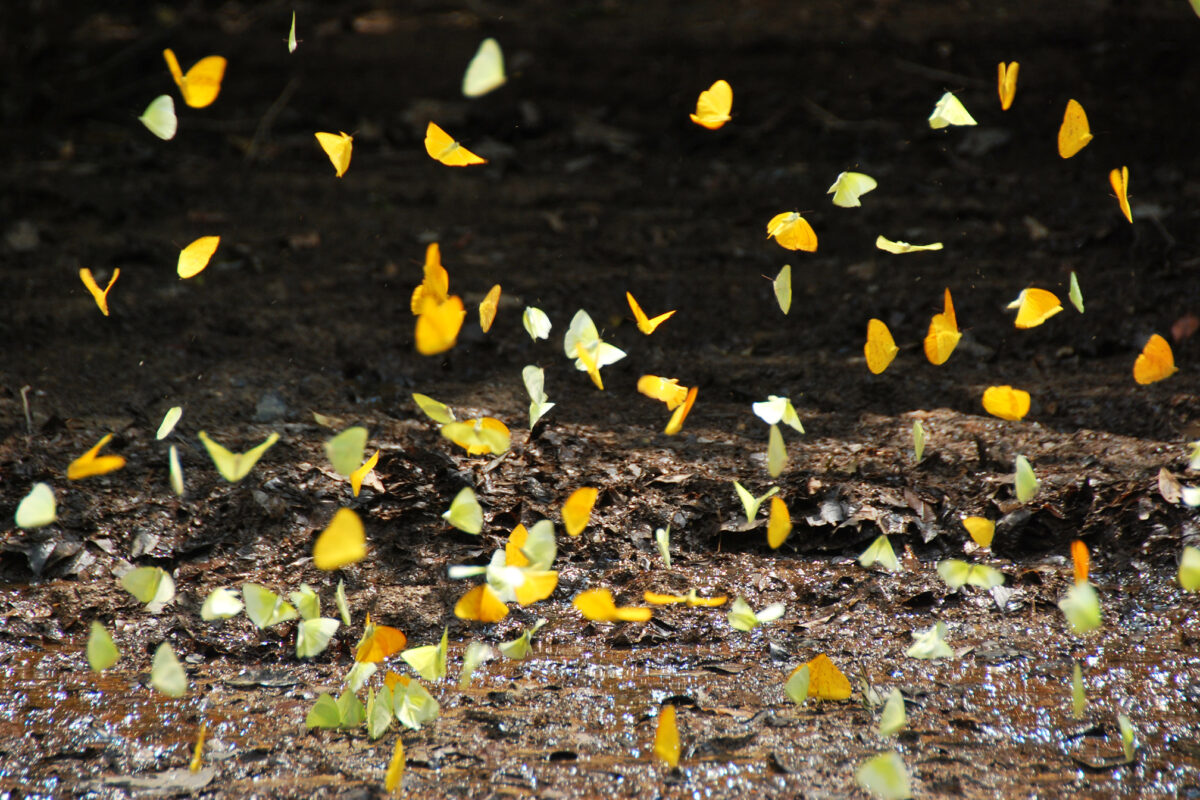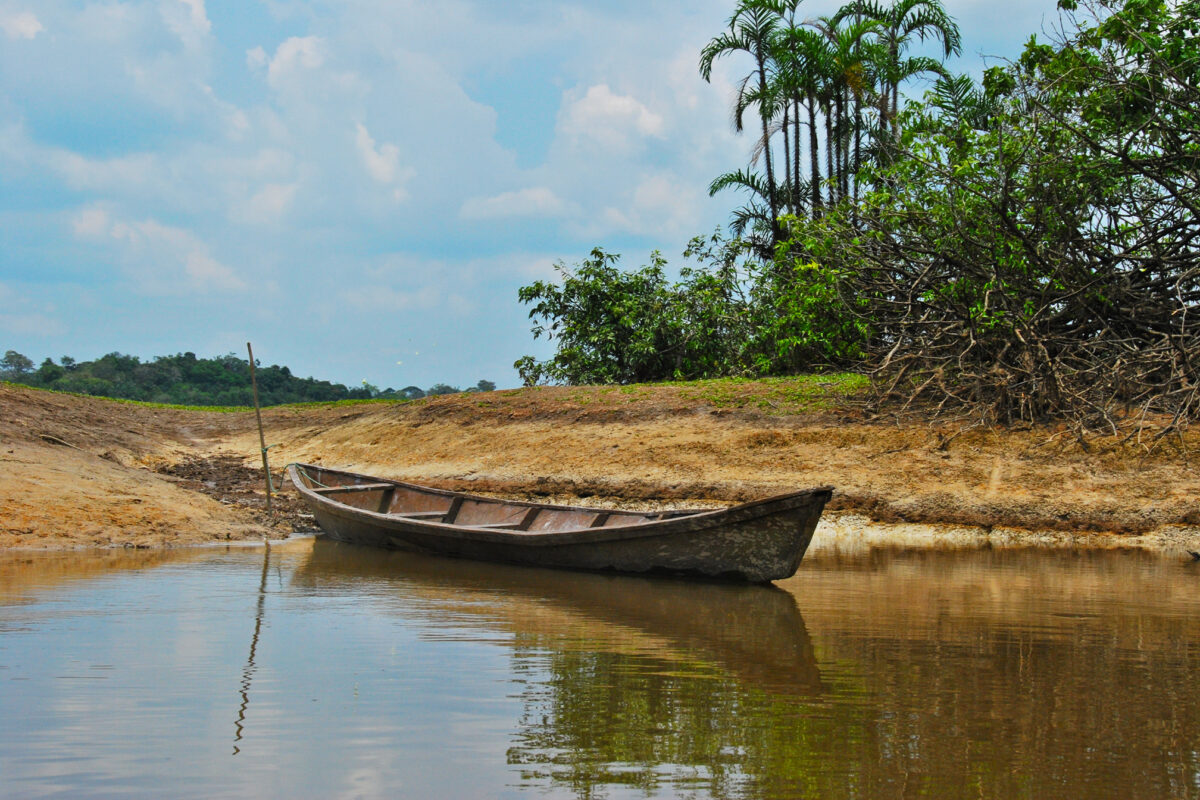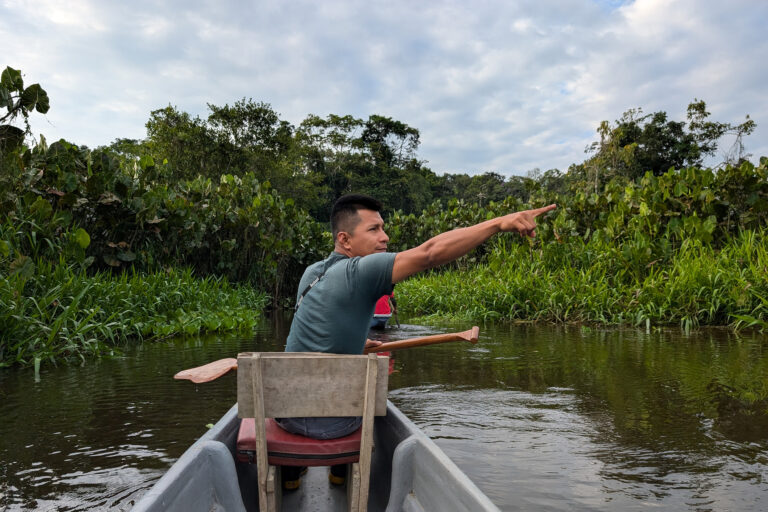- Brazilian President Jair Bolsonaro has signed a decree revoking a zoning regulation for the sugarcane industry, effectively allowing for cultivation of the crop in the Amazon and other areas of primary forest.
- The measure is controversial because it wasn’t requested by the industry, which, under the previous regulation, was permitted to expand onto degraded land and cattle pasture covering six times the area currently planted with sugarcane.
- The government has justified the move as necessary to boost the ethanol industry in Amazonian states, but experts warn the end of the zoning restriction could present an obstacle to ethanol exports to the European Union, damaging the biofuel sector.
- To date, the sugarcane industry has remained dissociated from the deforestation linked to the cattle and soy industries. Environmentalists say this new decree could end that exception, while also sending the message that the government sees no value in protecting standing forests.
A decree issued by President Jair Bolsonaro that would allow the cultivation of sugarcane in the Amazon — where it currently isn’t allowed — has surprised even the local sugarcane industry, which has previously rejected the notion as unfeasible, unnecessary, and a minefield of reputational risk.
The decree was published in the government’s official gazette on Nov. 5. Since then, no representatives from UNICA, the Brazilian Sugarcane Industry Association, have commented on the change. In its only statement on the matter, published on its website, UNICA described the zoning regulation repealed by Bolsonaro’s decree as an “instrument of the past.” But it also emphasized that under the RenovaBio bioethanol initiative, Brazil’s national biofuels policy that comes into force in 2020, that the industry had “decided that it would be [committed to a] zero … deforestation policy.”
The industries most closely associated with deforestation in the Amazon are cattle ranching and soy cultivation. The sugarcane industry, which has made Brazil the world’s No. 2 producer of bioethanol fuel after the United States, has avoided that association for several reasons. The first is that the crop is simply unsuited for that particular environment; heat or drought stress causes the plant to stop growing.
The industry has also seen no justification for expanding into protected areas when available land is plentiful elsewhere. The newly repealed Sugarcane Agroecological Zoning regulation provided for the possibility of planting sugarcane on approximately 60 million hectares (150 million acres) outside forest areas, in degraded or pasture areas, without having to expand into the Amazon, Pantanal or other biomes with primary forest. Even restricted, the permissible land bank is six times greater than the total planted sugarcane area in Brazil at present.
There’s also the reputational risk of being associated with deforestation in the Amazon. That was the main message from the National Sugar-Alcohol Forum, of which UNICA is a member, when it met in March last year. The forum advocated the rejection of a bill in the National Senate that would authorize the inclusion of the Amazon in sugarcane zoning plans.
“Besides these technical justifications, permission [for planting in the Amazon] can generate a totally unnecessary conflict with environmentalist arguments, outside the theses of conservation and environmental preservation… with which the sugar-energy sector is in solidarity,” the Forum wrote in a letter to the Senate.

“The agroecological zoning was a factor of tranquility to Brazil’s sugar and alcohol sector, which managed to completely dissociate itself from the deforestation agenda,” said Fernando Guedes Pinto, public policy manager at the Institute for Forestry and Agricultural Certification and Management (Imaflora). “Unlike meat and soy, they didn’t need to explain to customers. Now their safeguard has fallen.”
Pinto emphasized that it is especially important for the bioethanol industry to not be linked to the destruction of environmentally sensitive areas. Ethanol made from sugarcane, and used as a replacement for gasoline, is considered a renewable energy source and a way to reduce greenhouse emissions, especially for export markets in the European Union and Japan. In the U.S., bioethanol is made from corn, and the production process emits more carbon than it absorbs. Compared to gasoline, sugarcane ethanol produces 89 percent less greenhouse gas emissions, while corn ethanol produces 38 percent less than the fossil fuel.
“This means that Brazil has an important [environmental] competitive advantage over its competitors, as long as it can ensure that sugarcane does not generate deforestation,” explained Raoni Rajão, a researcher at the Federal University of Minas Gerais (UFMG). “Maintaining the zoning is a condition for the European Union to maintain its quota of 850 million liters [224.5 million gallons] of ethanol from Mercosur,” the South American trade bloc of which Brazil is a part.
In fact, a study published this year by the European Commission concludes that if the ban on sugarcane planting in the Amazon is maintained, production expansion impacts on native vegetation both in the Amazon and in the Cerrado savanna biome would be less than 2 percent. “It is a transition opportunity for the Brazilian sugar industry to meet the growing demand for ethanol and sugar while meeting the country’s sectoral mitigation targets and compliance with EU environmental criteria,” the authors write.
Cid Caldas, the agroenergy coordinator at the Ministry of Agriculture, said the revocation of the Sugarcane Agroecological Zoning was a result of pressure from the governments of Amazonian states, which have ethanol-processing mills within their borders, but no local sugarcane plantations to provide the feedstock. “What was the technical justification [of Bolsonaro’s decision]? None,” he said, adding that there had been significant demand to change the rules.
Mongabay sent questions to the Ministry of Economy requesting the market studies that supported the new measure. There was no response as of the time this article was published.

Government mixed messages
Caldas noted that the now annulled zoning regulation “didn’t [actually] prohibit planting anywhere,” including in the Amazon. However, what it did do was prohibit the use of funding from state financial institutions for sugarcane crops grown outside the zoned areas. Companies could still get funding from elsewhere to do so, even in the Amazon, though that was unlikely due to the lack of government financial support. This changes under the new decree.
Caldas noted, however, that other restrictions would still apply to Amazon sugarcane startups: “For the businessman to set up a production unit to process sugarcane, he will be under all the restrictions of the Forest Code,” he explained. Brazil’s Forest Code authorizes land clearing on up to 20 percent of privately held Amazonian lands put into sugarcane production — the rest must be conserved.
An even more stringent standard is set by Brazil’s National Biofuels Policy, RenovaBio. It provides incentives for biofuel production, and while it doesn’t tolerate deforestation — companies found clearing primary forest are excluded and lose any benefit provided by law to agroindustry — it is a voluntary membership program.
“If deforestation and sugarcane planting are worth the risk, they will be done,” UFMG’s Rajão said. However, “This could compromise the entire [supply] chain, which becomes contaminated with deforestation in the Amazon.” That reputational contamination could result in the environmentally sensitive EU rejecting Brazilian produced sugarcane exports.
There’s one key difference now, Rajão said: Companies operating in areas previously ineligible for low-interest public financing now no longer need to worry about higher market interest rates.
As most of Brazil’s sugarcane plantations and processing mills are located in the country’s midwest, where there’s still plenty of fertile land and a favorable climate for expansion, it appears unlikely that sugarcane cultivation will immediately flare up in the Amazon. But environmentalists say the forest is still at risk.
“The message that the [Bolsonaro] government gives when changing public policy is that the standing forest has no value,” Imaflora’s Pinto said. “It puts more fuel on the fire because it is another sign that the Amazon can be occupied. It accentuates conflicts and exacerbates existing problems. This is one thing Brazil doesn’t need.”
Mauro Armelin, executive director of Amigos da Terra Amazônia Brasileira, an NGO, said the new decree raises concerns because it stimulates land speculation in a region already rife with numerous counterfeit land titles and massive illegal land grabs. He linked the new measure to a bid to permit land purchases in the Amazon by foreign entities, as contained in a congressional bill that was unarchived last February.
“What will happen is that even if no sugarcane is planted in the next five years in the Amazon, or no new [processing] plant is installed, the real estate speculation industry, which works in the long term, will win,” Armelin said. “There will be land appreciation, leading the agricultural frontier deeper into the forest, where the land grabbers are, because the border areas are being bought for sugarcane, replacing pastures, which will be taken farther north.”
Banner image: A sugarcane plantation near Capixaba, Acre state. Image by Lou Gold via Flickr CC BY-NC 2.0.
This story was first reported by Mongabay’s Brazil team and published in Portuguese here on our Brazil site on Nov. 11, 2019.
FEEDBACK: Use this form to send a message to the author of this post. If you want to post a public comment, you can do that at the bottom of the page.














